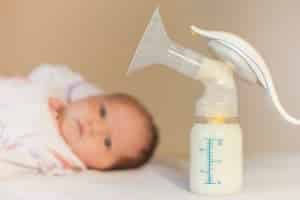Here is a chance to audit-secure one of your policies!
- Do You Have a Nursing Mothers Policy and Procedure?
- Do you allow nursing mothers to express milk as per federal law?
- Does your private location for this activity meet federal and state specific guidelines?
- When the mother exercises her right to this break, does anyone in your workplace “retaliate”?
- Have you trained all managers and supervisors on this specific type of break?
If you can’t answer all of these questions in a manner that benefits the worker, you may be in violation of this very important federal protection for your mothers who are nursing a child under 12 months of age.
Employers with 50 employees or more are required to provide this unpaid break as needed to nursing moms. HOWEVER, if you have

less than 50 employees, you are still required to follow the law UNLESS you can provide proof of a hardship exception.
Attorney John Thompson from the law firm Fisher Phillips has some great information on this very topic regarding a recent DOL case and how this employer actually got off the hook with little hassle. But, he also cautions that you should not take this for granted. The DOL can actually file suit against employers and if there are numerous complaints, that issue can get very sticky.
Read on…
The U.S. Department of Labor reports that a California restaurant company has agreed to take steps to remedy alleged:
◊ Non-compliance with the federal Fair Labor Standards Act’s requirement that covered employers give unpaid break time to a worker for the purpose of expressing breastmilk for her nursing child; and
◊ Retaliation against an employee who sought to take such breaks.
The FLSA’s Section 7(r) generally obligates covered employers to permit reasonable break time for an employee to express breast milk for her nursing child each time she has need to do so. The exceptions are limited.
Management must make a place available for this purpose (other than a bathroom) that is shielded from view and is free from intrusion from coworkers and the public.
The employer must provide these things for a year after the child’s birth.
USDOL Investigates
USDOL looked into the restaurant worker’s claims that management had discouraged her from taking the breaks she needed. She also asserted that her employer had not provided an appropriate place for them. She further contended that, after she sought the required time and place to take these breaks, she was assigned to a different shift and to a different work station, actions that she said reduced her tips.
The agency concluded that the employer had created a “hostile environment” for this employee and for other nursing mothers. USDOL also contended that the complaining worker’s rescheduling and reassignment had been retaliatory and had caused her to lose income. The resulting compliance agreement called for the company to:
◊ Conduct FLSA compliance training for its managers; and
◊ Pay the worker $666 in back-wages and unspecified other “damages”.
The Bottom Line
It appears from USDOL’s account that other potential measures were not invoked as to this particular employer. But USDOL can file a lawsuit asking the court to order an employer to comply, which could in turn result in contempt-of-court measures for future violations.
Furthermore, a retaliating employer could face potential exposure in a lawsuit, the remedies in which might include things like back-pay, front-pay, liquidated damages, reinstatement, promotion, and possibly even substantial sums as compensatory and/or punitive damages.
All of this serves as an important reminder: Employers should be certain that their responses to requests for these breaks are consistent with FLSA Section 7(r).
Many states also require these kinds of breaks. Section 7(r) does not override those laws to the extent that they are more favorable to the employee than the FLSA is. A nursing-mother policy must also take the applicable requirements of these other jurisdictions into account.”
Until Next Time, Be Audit Secure!
Lisa Smith
